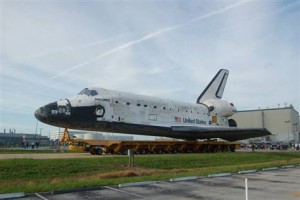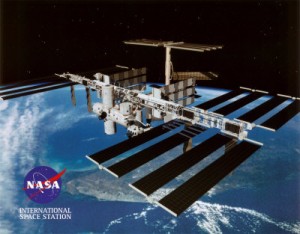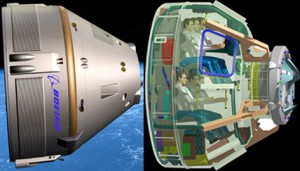
NASA image: Space Shuttle Discovery transport to launch pad
This is the last mission for Discovery before being retired. Workers at the space center and their family members watched the shuttle’s last rollout. Discovery was moved from the Vehicle Assembly Building at Kennedy late last night and arrived at the launch pad early this morning. The 3.4 mile journey was made, on top of a crawler-transporter, at a speed of less than 1 mph.
Six astronauts will be aboard Discovery on its 39th, and final flight. Unless an extra Atlantis Space Shuttle flight is approved by congress, mission STS-134, scheduled for February 26, 2011, utilizing Space Shuttle Endeavour will be the last mission before the entire shuttle fleet is retired.
NASA will purchase seats aboard Russian space vehicles until commercial enterprises such as Boeing create space transportation that can safely send astronauts to the ISS. NASA has been given direction by President Obama to focus on engineering spacecrafts that can reach a near Earth object (neo) such as an asteroid and a distant destination, possibly Mars.

